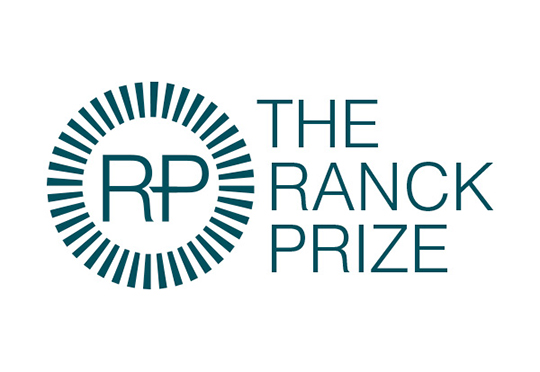 The political research of April Kelly-Woessner has “shaped the national conversation around politics in higher education and dispelled widely-held beliefs regarding the role of higher education in shaping the political views of students,” said Shannon Haley-Mize, associate professor of education and chair of the College’s Professional Development Committee.
The political research of April Kelly-Woessner has “shaped the national conversation around politics in higher education and dispelled widely-held beliefs regarding the role of higher education in shaping the political views of students,” said Shannon Haley-Mize, associate professor of education and chair of the College’s Professional Development Committee.
It’s for this academic exploration, she said, that Kelly-Woessner, professor of political science and chair of the Department of Politics, Philosophy and Legal Studies at Elizabethtown College, has been awarded the inaugural Elizabethtown College Ranck Award for Research Excellence for the 2017-2018 academic year.
Her “impressive body of scholarship in the field of political science” and “penchant for serving as an objective expert on both sides of the political divide” set her apart from other nominees, said Haley-Mize in a recommendation letter to Kristi Kneas, dean for academic affairs and faculty development. Her national and international reputation also is of importance, noted her nominating letter.
Kelly-Woessner’s research follows three distinct pillars: political socialization of college students, the lack of conservatives in higher education and a rising political intolerance among young people.
 As the recipient of the Ranck Prize, Kelly-Woessner will receive a monetary award and a supplement to her professional development fund to support ongoing scholarly activity. The College also will acknowledge her achievements through an invited Faculty Scholarship Lecture on March 28, 2018, recognition in the May 2018 Commencement program and at the 2018 Convocation.
As the recipient of the Ranck Prize, Kelly-Woessner will receive a monetary award and a supplement to her professional development fund to support ongoing scholarly activity. The College also will acknowledge her achievements through an invited Faculty Scholarship Lecture on March 28, 2018, recognition in the May 2018 Commencement program and at the 2018 Convocation.
Robert O. Kerr ’64 and Mary Ann Kerr ’64 established the Ranck Prize, this fall, as a permanent endowment to award, commend and celebrate a full-time Elizabethtown College faculty member for research and commitment to his or her field of study. The prize is named to honor John P. Ranck ’58, a faculty member emeritus and former chair of the Department of Chemistry and Biochemistry, for “his inspirational service to countless students at Elizabethtown College.”
“it’s especially gratifying to be recognized because I know that I work with a large number of exceptional scholars.”
Upon hearing of her nomination and subsequent award, Kelly-Woessner said “it’s especially gratifying to be recognized because I know that I work with a large number of exceptional scholars.” She credits at least part of the recognition to her positive reputation among media professionals and those in the field of politics in higher ed, which she said, come from her (and her cowriter husband’s) ability to come across as neutral on political topics. “They can’t discern if we are left or right,” she said of those reading of her examination of possibly dividing issues. “We let the data speak.”
Kelly-Woessner’s research is mentioned, often, in national media—New York Times, the Washington Post, USA Today, the Atlantic; she’s had numerous stories appear in Inside Higher Ed; and she writes a monthly column for LNP a Lancaster, Pennsylvania, news organization. “There was a huge article on my husband and me and our research in the Chronicle,” she said. “They interviewed people who said we are not left or right; we just present evidence.” Kelly-Woessner said she believes collaboration with researchers and writers who hold opposing viewpoints help keep her data focused.
“This penchant for serving as an objective expert on both sides of the political divide has also shaped Dr. Kelly-Woessner’s recent examination of political intolerance and higher education,” said Haley-Mize. “The provocative idea that ‘young people today are less politically tolerant than their parents’ generation’ has resulted in recent references to Dr. Kelly-Woessner’s work in several media outlets, once again influencing and shaping the national discourse at a pivotal time in our political history.”
Kelly-Woessner’s present research continues the thread of political intolerance among students. The initial round explored if this rise was legitimate; the second level looks to why it is taking place. “I’m exploring two paths,” she said.
“Is it lack of exposure to viewpoints of diversity; are they in political echo chambers? In life, we tend to isolate ourselves with people who agree with our line of thinking.”
She is also looking into a possible connection to the decline of civics education—the study of citizenship, its rights and its duties. “People who have greater levels of civics education, are more tolerant,” she said. “Instead of engaging, people who lack confidence in their civic skills attempt to shut down and silence those with whom they disagree.”
To receive the Ranck Award is an extra honor, said Kelly-Woessner, because, although she did not personally know John Ranck, for whom the award is named, she directly worked with Bob Kerr, developer of the award, when he was chair of the College’s board of trustees.

